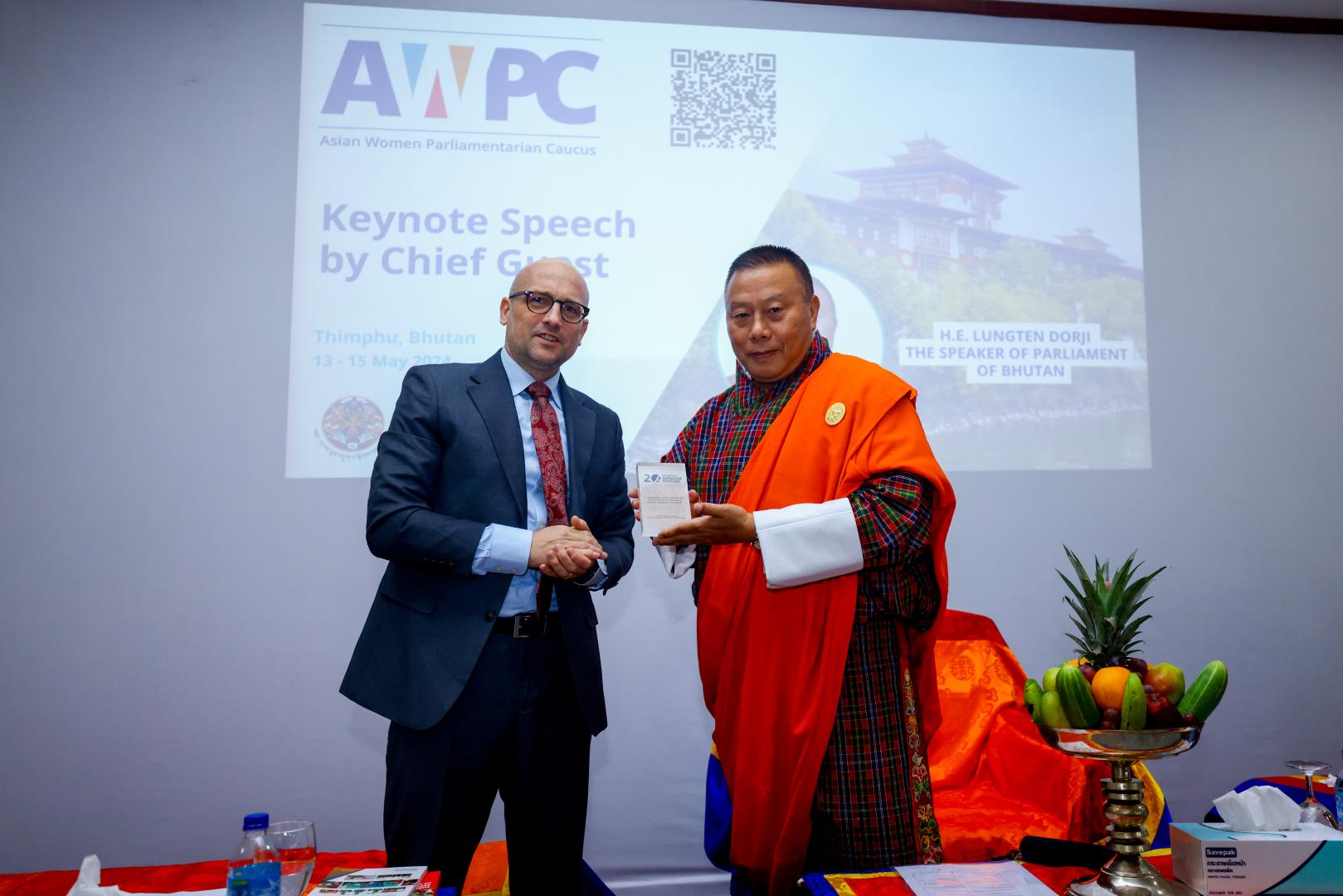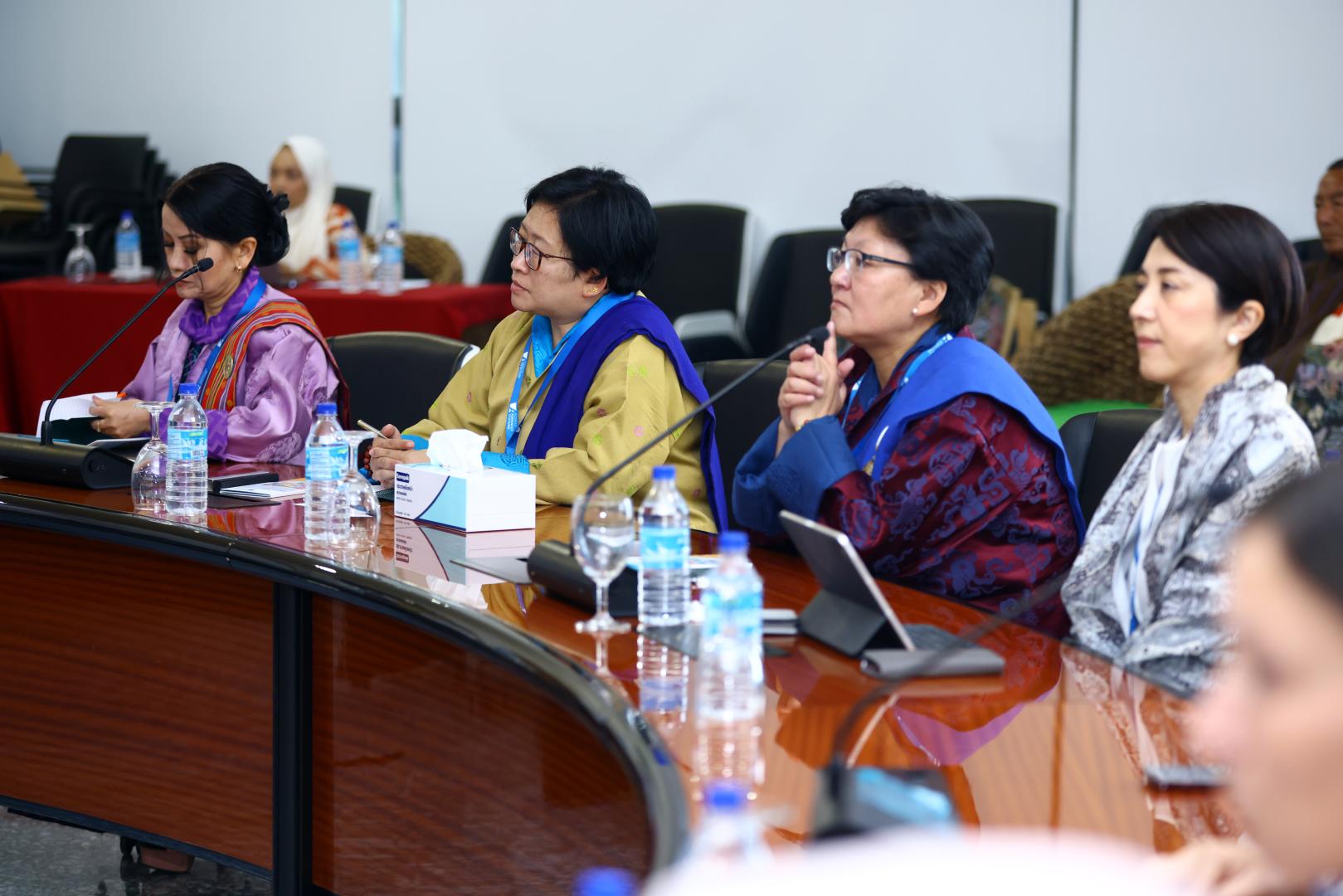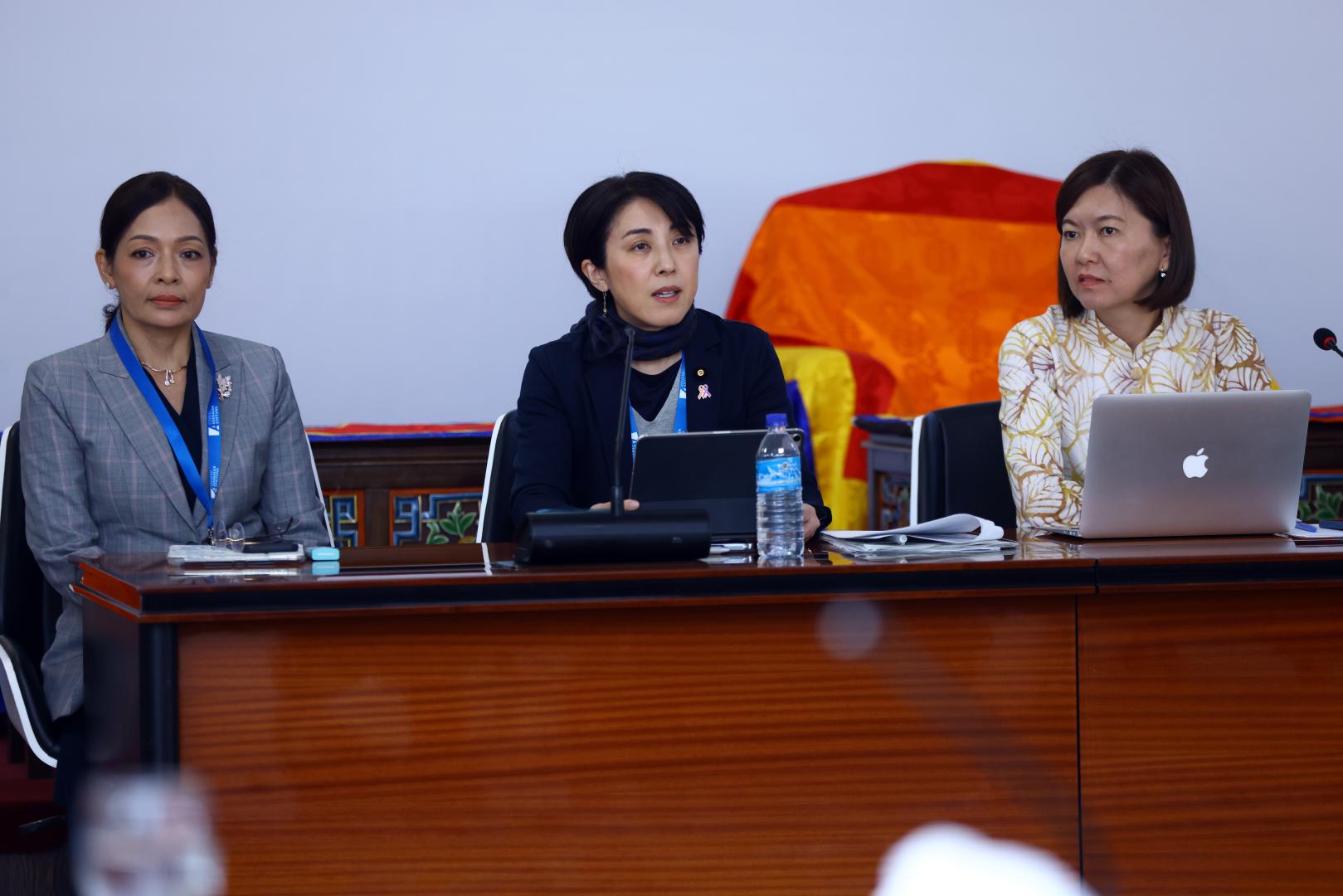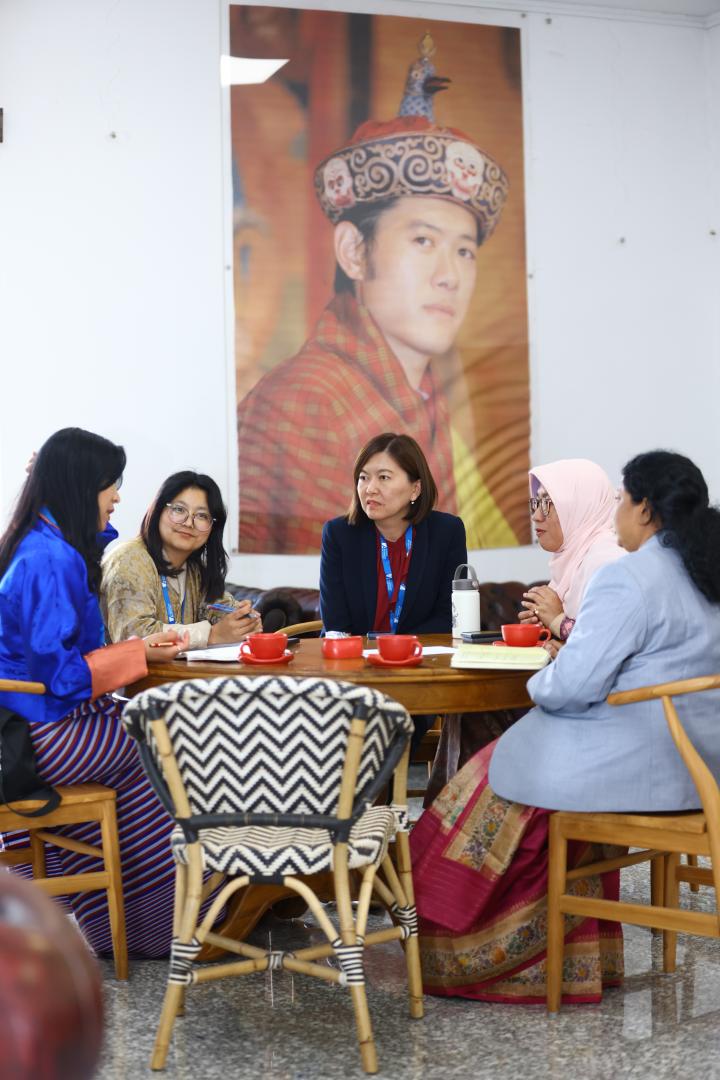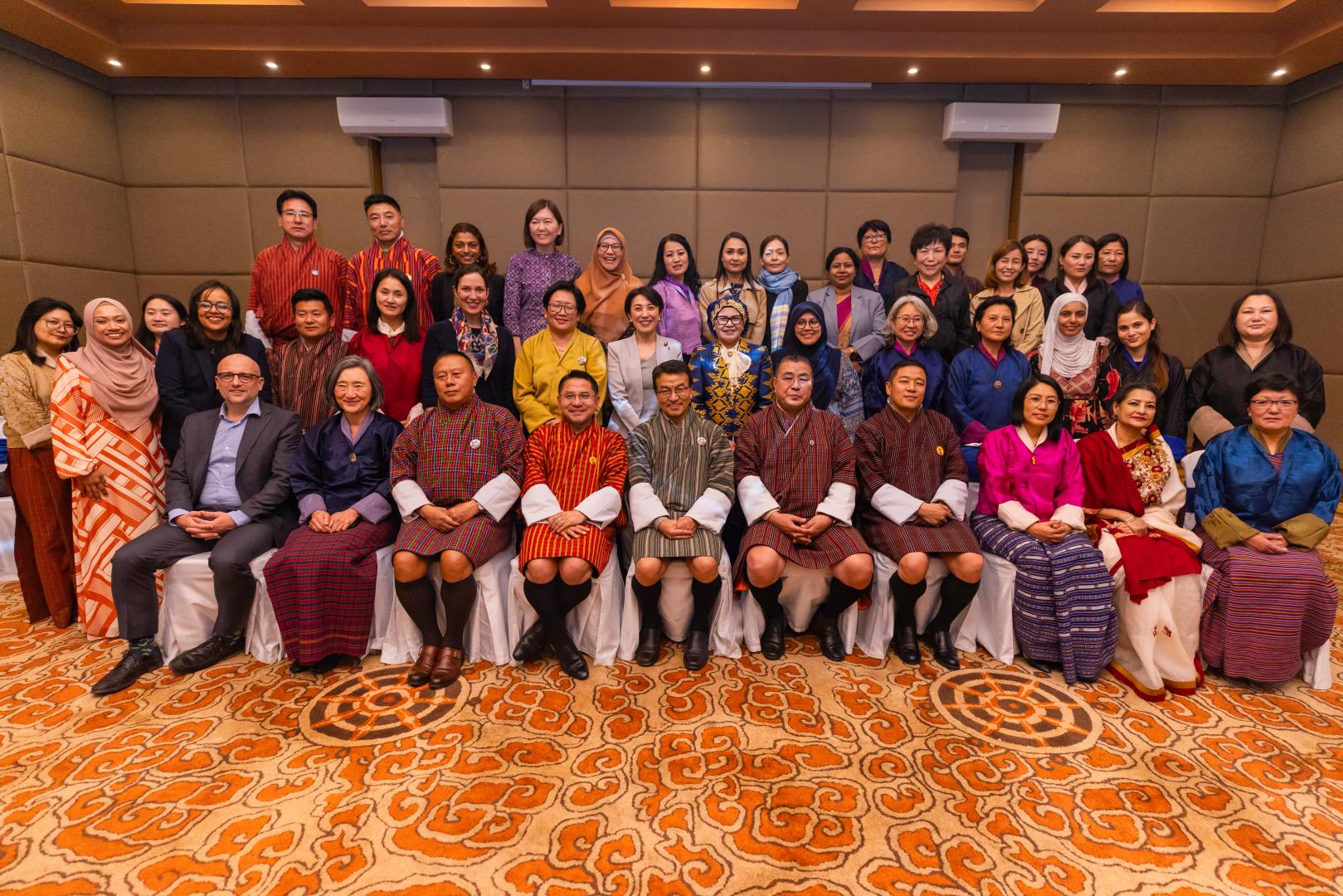Democratic development cannot take place without equal participation of women in all spheres of life, especially politics. As such, in lieu of the need to promote female political leadership training and empowerment in Asia, Konrad-Adenauer-Stiftung (KAS), Regional Programme Political Dialogue Asia office in Singapore is committed to pursuing programmes to narrow the political gender gap. A network of Asian women parliamentarians has been meeting annually since 2011 to promote, strengthen and develop female political leadership in the region through policy discussions and capacity building workshops.
In 2024, the Asian Women Parliamentarian Caucus members met in Bhutan to discuss “ Promoting Gender Equality and Climate Change Mitigation in Asian Parliaments” looking at the confluence on how women parliamentarians can engage together to share experiences from their country discuss policy priorities and campaigns, center frontline experiences, and coordinate for urgent needed action to achieve the Sustainable Development Goals.
For this year’s meeting we partnered with of the Royal Government of Bhutan which has always served as a model for sustainable climate and environmental policy and cultural preservation on a global scale. As our network members continue to work towards the achievement of the Sustainable Development Goals in their respective countries, it was very insightful to learn more from the key stakeholders of Bhutan.
The Asian Women Parliamentarian Caucus (AWPC) meeting of 2024 commenced in Bhutan, bringing together 14 members of Parliament from 12 Asian countries, along with Bhutanese MPs, former MPs, and civil society representatives from Bhutan. The inaugural session began with an introduction by Mr. Andreas Klein, Director of the KAS Political Dialogue Asia Programme. He provided an overview of the AWPC and the work of the Konrad-Adenauer-Stiftung (KAS), sharing insights from European and German experiences in empowering women's political participation. The keynote speech was delivered by the Honorable Speaker of the Parliament of Bhutan,Dasho Lungten Dorji. He highlighted Bhutan's progress in women's status but noted the significant challenges in political representation. Despite four rounds of Parliamentary Elections, women remain underrepresented due to gender biases, stereotypes, and societal norms. The speaker stressed the importance of creating gender-centric avenues for equal participation and representation, expressing concern over the downward trend in women's political leadership. He emphasized that events like the AWPC are crucial for empowering women leaders in Bhutan and across Asia to contribute to a just, harmonious, and prosperous society. This inaugural hosting of the AWPC in Bhutan, with a focus on gender equality and climate change mitigation, is expected to foster meaningful dialogue, cooperation, and action. Mr Tashi Namgyal Director of the National Commission for Women and Children (NCWC) delivered the vote of thanks, underscoring the importance of global collaboration in driving positive change and expressing gratitude for the commitment to advancing women's and gender equality.
Following the inaugural session of the 2024 AWPC meeting in Bhutan, delegates engaged in a networking session to share experiences and strategies for enhancing women's political participation across Asia. An open forum followed, with AWPC members discussing their challenges and the importance of continuous support for women in politics. Bhutanese MPs highlighted their National Plan of Action for Gender and the need for voter engagement. Civil Society Representatives emphasized the role of CSOs in advancing gender equality despite financial and cultural challenges. Group discussions addressed stakeholders' roles, long-term strategies for gender equality, and the global issue of women's political representation, proposing quota systems and promoting female role models. The first day concluded with a dinner attended by high-level Bhutanese dignitaries, facilitating valuable exchanges and enriching the overall dialogue at the AWPC meeting.
The second day of the AWPC meeting featured updates on recent elections in Taiwan, Indonesia, Bangladesh, Maldives, and Bhutan, where participants analyzed the outcomes and their implications for women's political participation. The discussions offered insights into electoral processes, political dynamics, and the representation of women, highlighting both challenges and opportunities across the region. Following these updates, a panel on "Gender and the Climate Crisis" underscored the disproportionate impact of climate change on women and emphasized the need for collaborative action. Parliamentarians shared policy priorities and advocacy strategies, aiming to foster a collective commitment to address the gender dimensions of the climate crisis effectively.
Subsequent discussions focused on the vulnerabilities faced by women migrants, addressing issues such as exploitation, discrimination, and access to essential services. Policy solutions were explored to enhance legal protections, healthcare, education, and economic empowerment for women migrants. The day concluded with a session on achieving the Sustainable Development Goals (SDGs) in Asia, where participants assessed regional progress and identified persistent challenges. The discussions emphasized the critical role of legislative bodies in driving policy reforms, enhancing collaboration, and mobilizing resources to advance the SDG agenda and promote sustainable development.
The Key takeaways from the AWPC meeting are :
- Recognition of Challenges: Despite progress, challenges such as gender biases, stereotypes, and cultural norms continue to hinder women's political representation across Asia.
- Importance of Collaboration: The meeting emphasized the importance of collaboration among various stakeholders, including parliamentarians, civil society organizations, and the media, to empower women in politics.
- Policy Priorities: Participants shared policy priorities and initiatives from their respective countries aimed at promoting women's political participation, including quota systems, education initiatives, and financial support for women candidates.
- Intersectionality: Discussions highlighted the intersectionality of gender with other issues, such as climate change and migration, underscoring the need for comprehensive approaches to address women's empowerment.
- Hands-on Experiences: Delegates had the opportunity to visit local government institutions and nunneries, gaining firsthand insights into Bhutanese governance structures and initiatives promoting gender equality.
- Commitment to Action: The meeting concluded with a commitment to advancing the Sustainable Development Goals (SDGs) in Asia and fostering collaboration among parliamentarians to drive policy reform and implementation.
Overall, the AWPC meeting served as a platform for meaningful dialogue, knowledge exchange, and networking, contributing to efforts to promote women's empowerment and gender equality in the region. The AWPC meeting in Bhutan marked the first event of its kind in the country, garnering significant acknowledgment and applause from the Royal Government of Bhutan. The presence of high-level dignitaries at most of its events served as a testament to the importance and significance of the occasion. This acknowledgment underscored the commitment of the Bhutanese government to promoting gender equality and women's empowerment, as well as its recognition of the value of international collaboration and dialogue in advancing these goals.
The AWPC meeting concluded with a resolute commitment to advancing the Sustainable Development Goals (SDGs) in Asia, underscoring the importance of collective action and collaboration among parliamentarians to drive meaningful policy reform and implementation.
